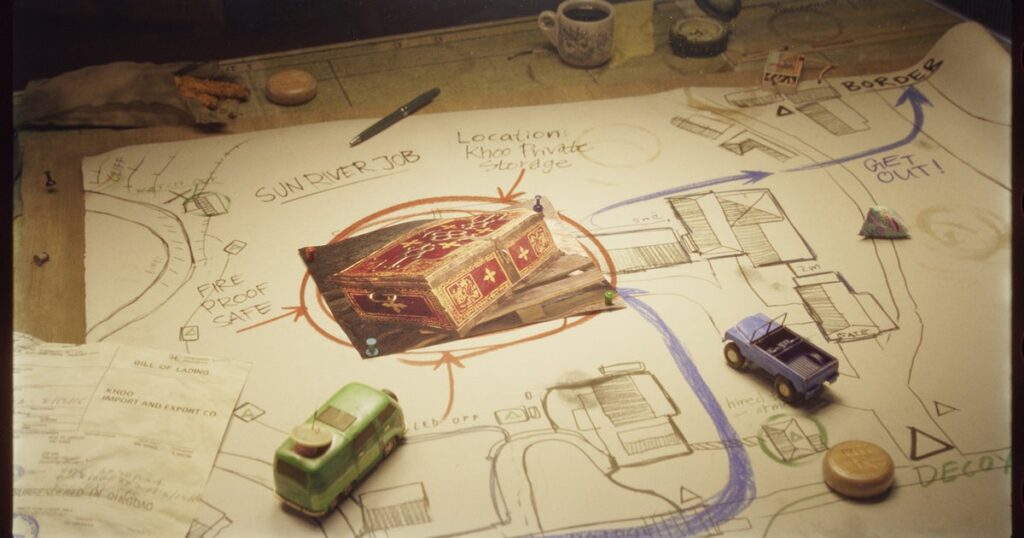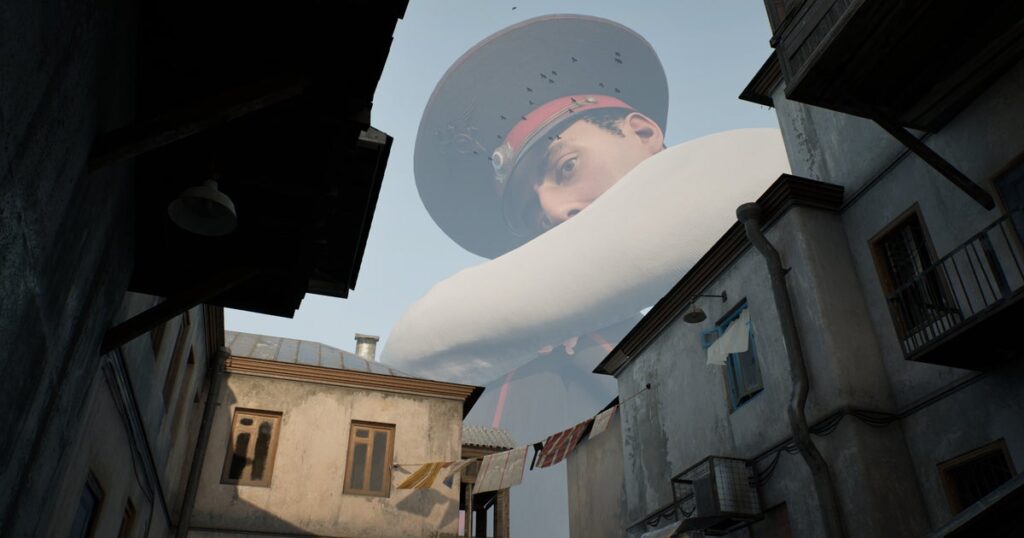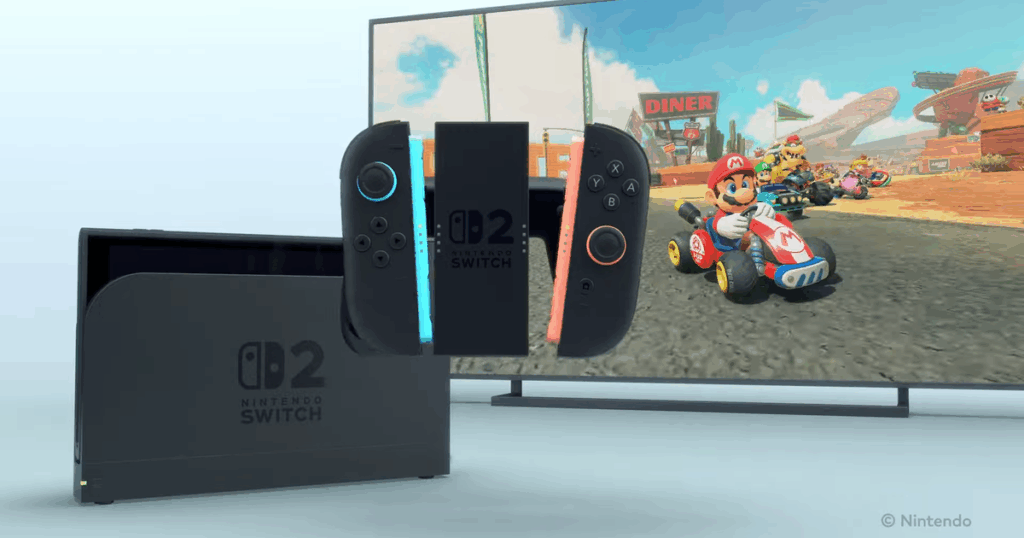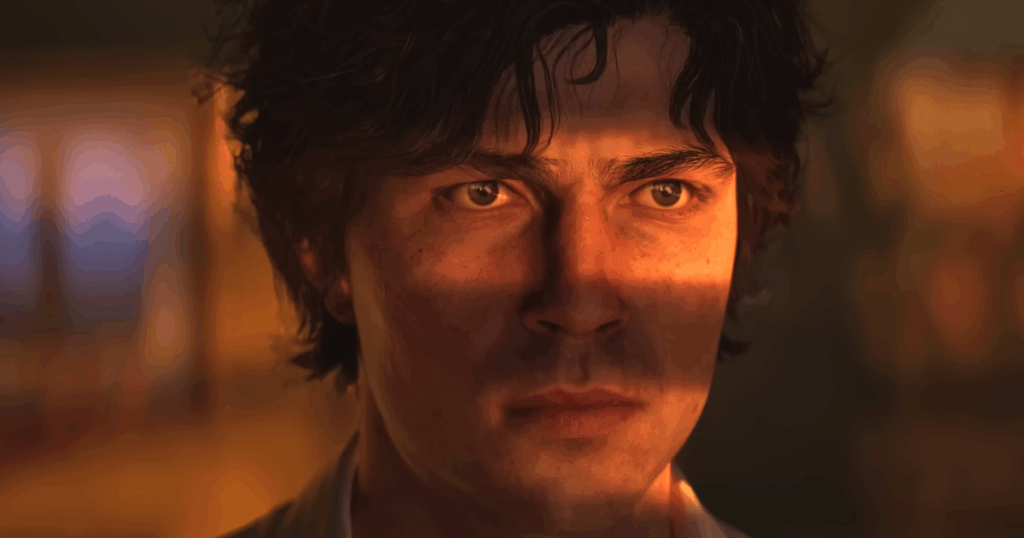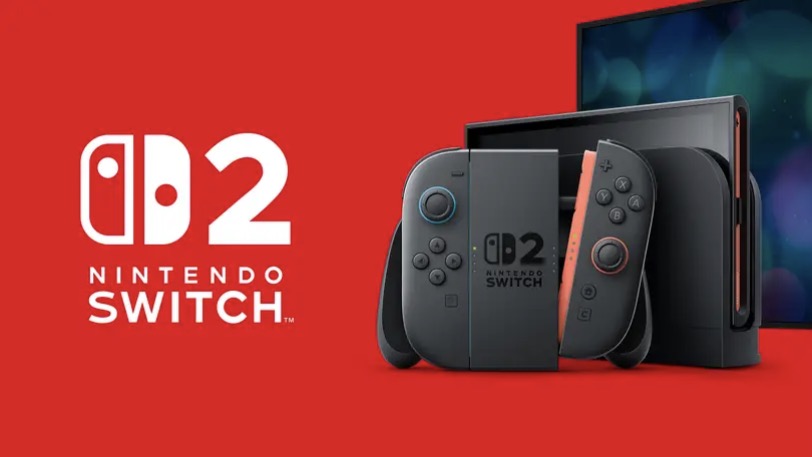From dystopian “egg-frying simulator” Arctic Eggs to anti-capitalist horror adventure Mouthwashing, Critical Reflex is becoming known for publishing games that are, above all, difficult to define. For founder Rita Lebedeva, finding these games is the natural result of following her own tastes as a player.
“When you’ve been gaming for such a good while it’s quite clear that this sense of wonder becomes a rare occasion,” she tells GamesIndustry.biz. “What I’m personally looking for in games as a player is definitely fresh twists on mechanics or settings, whether it’s a video game or a board game. I love games that refuse to stay in their lane. I’m not looking for a ‘good solid experience’, I want games that will cut me open and leave me bleeding.”
Lebedeva often speaks passionately about games in this fashion, and is incredibly quick to name her dream game to sign – a game featuring a cursed OS akin to Buddy Simulator 1984, one of her favourite games. To her, it is this passion that sets Critical Reflex apart, at a time when chasing gaming trends just isn’t a viable option anymore.
That’s why she doesn’t put stock in market-proven concepts and data-driven scouting. Instead, she believes that if she finds something unique and exciting, others will, too.
The process of deciding on a game to sign at Critical Reflex involves production team members coming together to have a spirited debate about their experience playing. Lebedeva concedes that this approach may seem unprofessional, but the unorthodox approach is very much the point.
“Mostly it allows us to figure out if anyone is touched by it enough to avidly defend it,” she says. “We often joke that we’re a vibes-based publisher. It’s not random, we champion an intuitive pattern recognition, because we’re not looking to chase things that reiterate on the recent bangers.”
Aside from providing funding and regular services like community management, QA, and even trailer making in-house, Lebedeva believes it’s the way CR markets games – with a ‘from fans, for fans’ ethos – that sets the publisher apart.
“Our team is creative and finds ways to elevate the games while wrapping it all in a weird obscure wrapping that draws players in,” she says. “We are actively building our own audience that makes cross-promotions very successful. Our Discord server has nearly 200,000 members which speaks for itself.”
Critical hits
Lebedeva describes Critical Reflex as a publisher that wants to promote a developer’s vision long-term.
“I think the most important thing we hear back from the developers after signing is that they walk out of a call knowing that we ‘get it’,” she says.
“Our team is genuinely living and breathing video games and internet subculture. We’re those weird nerdy gremlins who also know how to package and sell their game and do it with respect to their art. We want to build a legacy for our developers. We want to make sure people remember the impact years from now.”
An interesting example of this is the publisher’s collaboration with Monumental Collab, a collective of developers from Brazil. When Critical Reflex signed the developer’s upcoming game Drowned Lake, it decided to also find a way to market their already finished game Teleforum. Instead of releasing it as a paid game, Teleforum is available free to play, because according to Lebedeva, it “felt like a teaser for another game.”
“We saw it as a gateway, a way to build Monumental Collab’s legacy and audience footprint ahead of bigger, riskier projects like Drowned Lake,” Lebedeva says.
“We paid them the expectations they had for a commercial launch and made it available to everyone. Publishing something free-to-play wasn’t about making it disposable, it was about lowering the barrier to entry into this weird world.”
Another example of Lebedeva pursuing a project with a fan mentality is that of developer Tallboys’ upcoming immersive sim Militsioner. Lebedeva approached the studio on three separate occasions across three years, seemingly all but chasing them down to sign with the publisher.
Militsioner does seem like exactly the type of hard to define game Critical Reflex is drawn to – the genre term ‘exploration game’ feels inadequate considering it’s a game about fleeing a town watched over by a giant policeman who extends a massive hand to catch you if he sees you breaking a law.
“It wasn’t about the terms, they haven’t changed at all throughout the years. Despite us growing significantly and the industry changing since our first conversation, we felt like it would be fair to stick to the original offer,” Lebedeva says. “I guess now is the best time for us to partner – we have a lot of capacity for the wild ideas and real support to fuel their creative vision. Tallboys have locked in the scope and the game core.”
“We felt confident enough in our experience to try self-publishing,” Tallboys studio director Dmitry Shevchenko explains when discussing the developer’s initial approach.
It is true that during all those years that Lebedeva approached the studio, Tallboys had no problem building an audience of its own, thanks to a transparent approach to game development that includes a large Discord server, regular public playtesting sessions, a devlog, and a large presence on social media.
For Shevchenko, feedback on Militsioner doesn’t just help the studio, it is also a way to take the mystery out of game development.
“It not only helps you refine the game, but also builds a connection between you and your audience,” he says. “Games are often made behind closed doors but opening that process creates trust and turns players into participants in the journey. Beyond that, this shift toward openness benefits the whole industry.”
Tallboys has not changed this approach since signing with a publisher. The developer continued to iterate on the game as before. The answer as to why it decided to sign with a publisher at all is simple.
“Full production requires stable funding and that was hard to secure,” Shevchenko continues. “A publishing deal also gives us the ability to delegate a lot of things, like organising showcases, events, and marketing. That frees us up to focus more deeply on the development itself.
“So we started looking for a publishing partner who would match our pace, our process, and our vision. We appreciated Creative Reflex’s ambition and their hands-on approach, and felt it would help raise the game’s visibility even more.”
Not all of Militsioner’s visibility has been positive. Due to its clear political reference – Militsioner is the term for a member of the police forces of the Soviet Union, a role it steeped in propaganda – a Russian news segment described the game as anti-Russian.
Listening to Shevchenko tell it, Militsioner is far more interested in exploring moral grey areas, drawing inspiration from Dostojewski’s Crime and Punishment, Kafka’s The Trial, and even Team Ico’s Shadow of the Colossus.
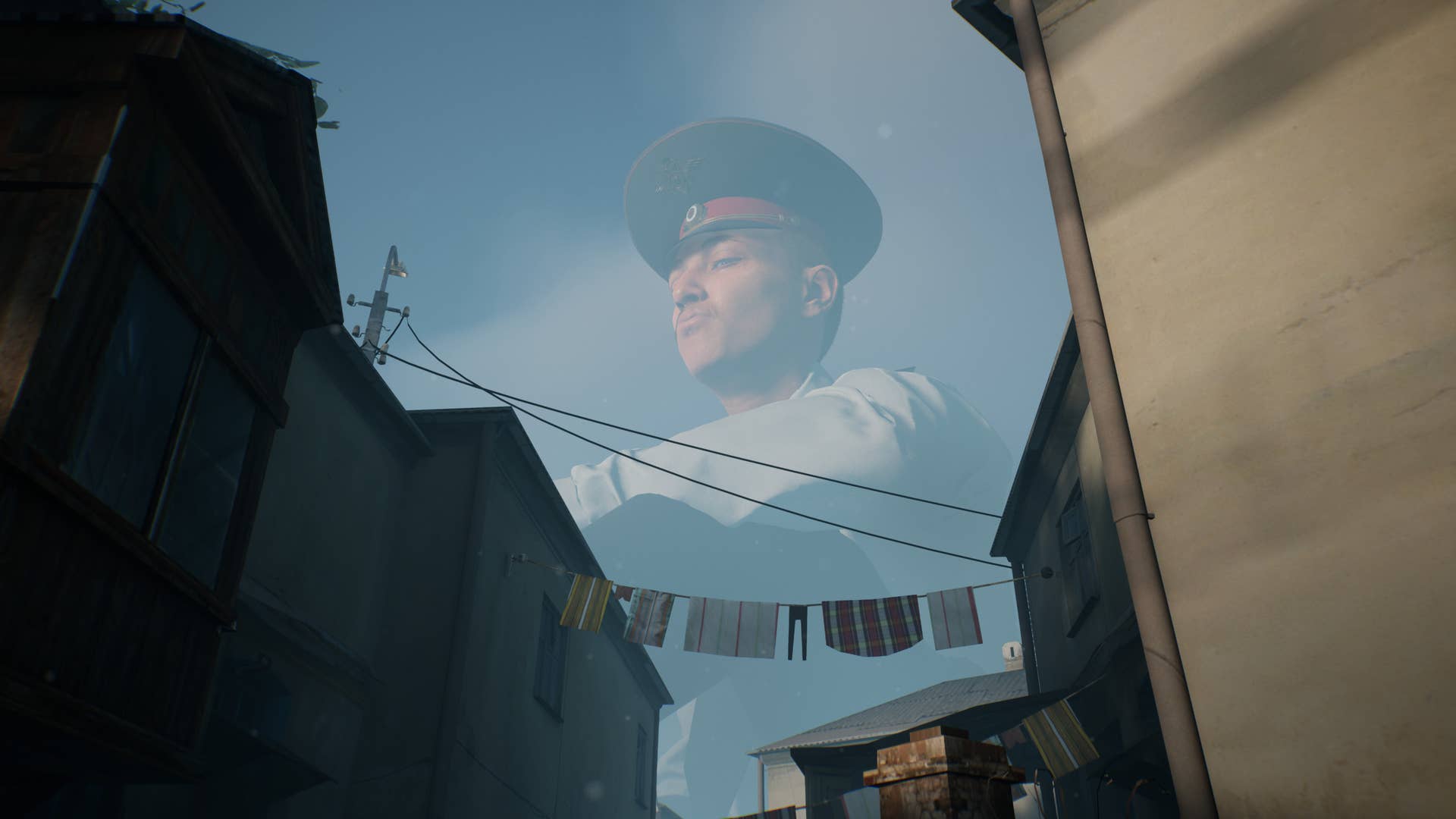
In the game’s current iteration, the policeman expresses doubts about his occupation, and there are hints you can make him fall in love with you to escape. Tallboys describes the mechanics of interacting with him and other characters as “Tamagotchi-like”, suggesting you exert a certain influence over them as much as they do about you.
To Rita Lebedeva, it’s a game controversial enough to spook other publishers, which is exactly what made her interested in it.
“It is too risky by traditional standards, but that’s exactly what makes it special,” she says. “We want cultural waves, not safe signings. What matters to us are not day one sales, but what will stick in players’ heads, lingering for years to come. And in my eyes that’s priceless. Games aren’t just a distraction or toys, we stand for artistry, courage and cultural relevance. Signing games like Militsioner is a part of our mission to stir a conversation. We want to be a publisher that can support these types of games, and has an audience that doesn’t shy away from challenging topics and discomfort.”
A closer look at Critical Reflex’ slate of games confirms the publisher wants to be known for more than just surreal short experiences. Upcoming games include the likes of dungeon crawl dating game hybrid Freaked Fleapit by Finch Bird Studios, metroidvania Altered Alma by 2Awesome Studio and the cute delivery sim Tanuki: Pon’s Summer by Denkiworks.
While Lebeveda isn’t too worried about Critical Reflex being pigeonholed as a publisher for weird games, she does admit the success of games such as Mouthwashing keeps her on her toes in this regard.
“We want cultural waves, not safe signings. What matters to us are not day one sales, but what will stick in players’ heads”
Rita Lebedeva, Critical Reflex
“Sure, having some smash hits may be a double edged sword in that regard,” she says. “It’s absolutely helpful for acquisition as developers can see that we can make weird games successful, but we need to constantly improve, evolve and come up with something new.
“The long game isn’t about locking into one genre or tone, it’s about building a reputation for curation. We want people to see our name and think, ‘If they signed this, it’s going to be something special,’ even if it’s wildly different from the last thing we launched.”
Critical Reflex’s subdivision CR Channel, which focuses on horror games, is actually not an effort to divide the publisher into two different categories, but was devised as a way to market Teleforum along with its existing slate of horror games.
“You can market these games separately, you can make internal divisions to figure out how to speak to the audiences of the games in the internal divisions or you can come up with a strong voice that elevates them together. With CR Channel, we can cross-promote these horror titles more naturally,” Lebedeva says.
“CR Channel lets us experiment with distribution, marketing, and audience-building in ways we couldn’t if everything had to fit a safer strategy.”
Nothing about Critical Reflex sounds particularly safe, but at a time where any indie developer struggles to find funding, it is nice to think that someone is making an effort to find the games that would traditionally end up being overlooked.
“Most publishers want mass-market appeal,” Lebedeva says. “We want to turn a niche into a cult.”


